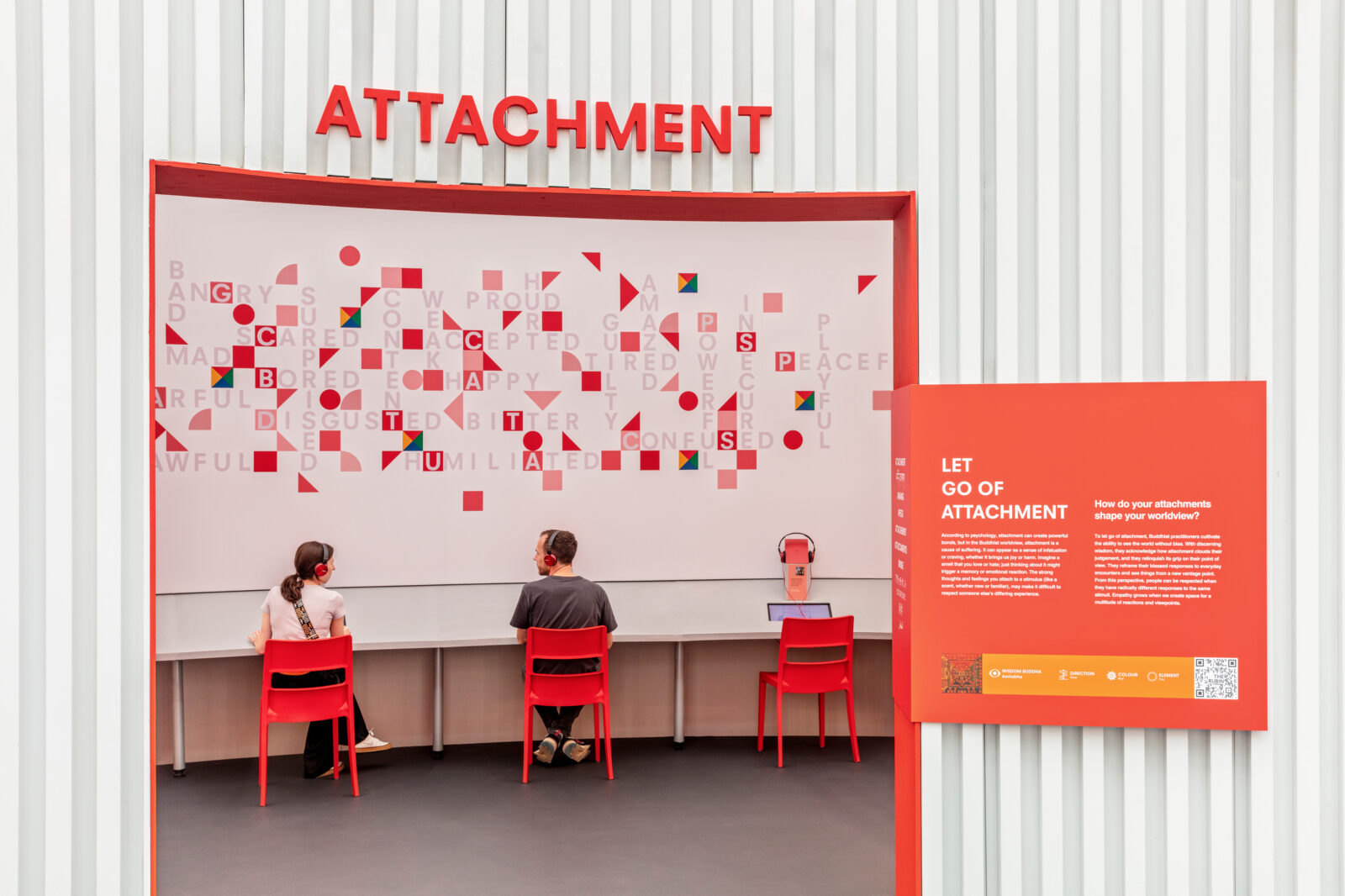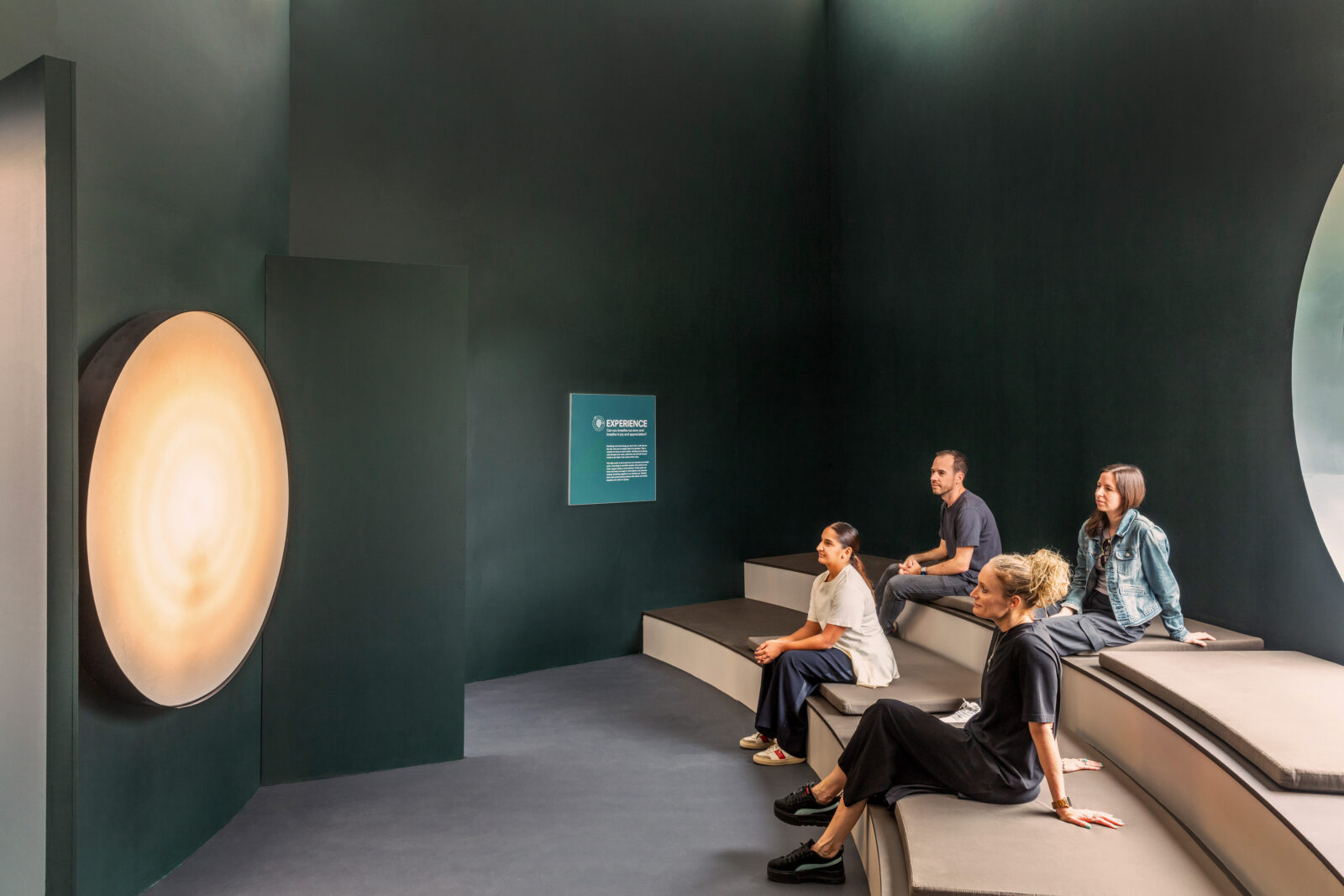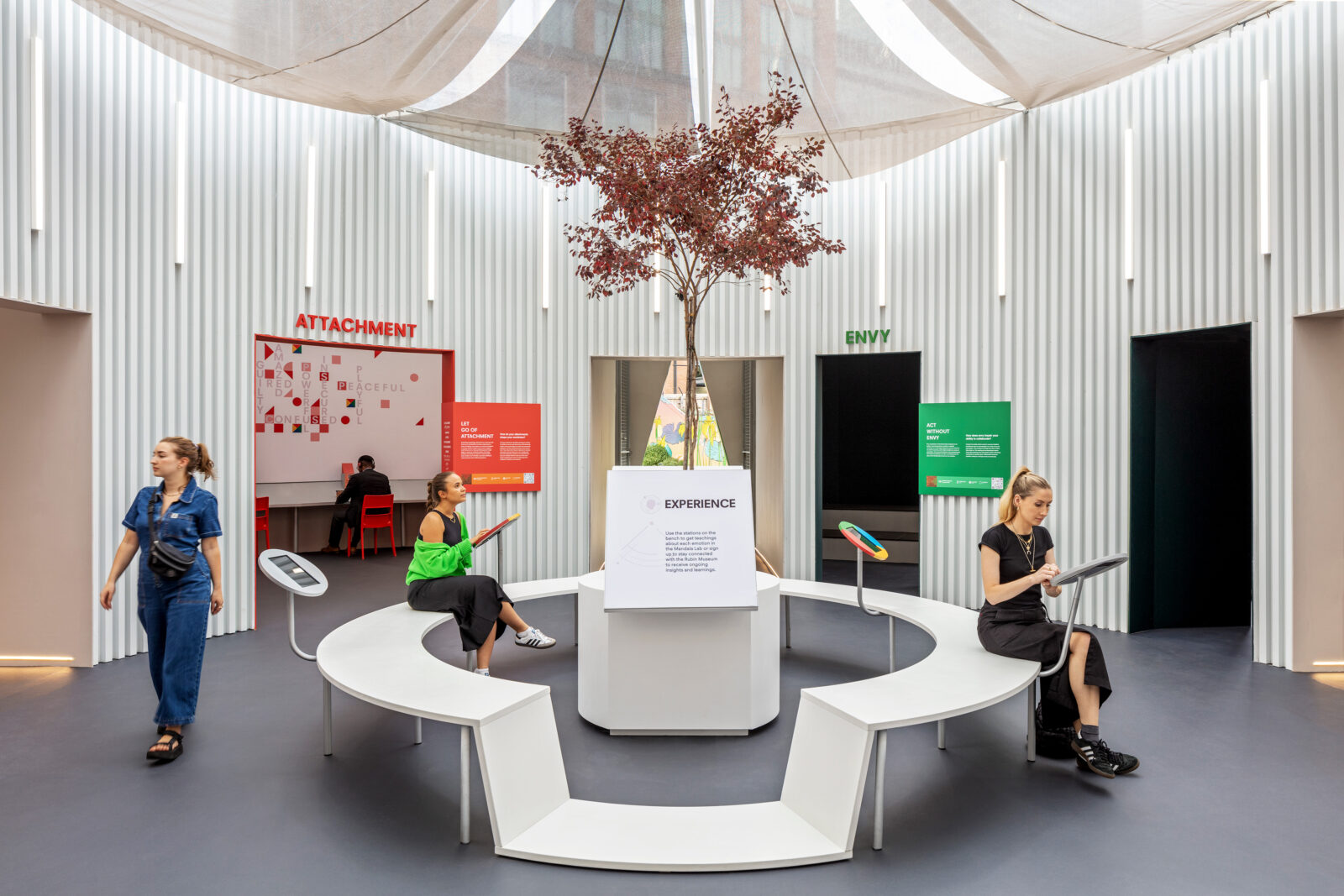The Mandala Lab is an interactive space that draws inspiration from a Tibetan Buddhist mandala—a teaching aid that Buddhist practitioners use to gain a clearer understanding of the world. Within the mandala, five difficult mental states (kleshas) are encountered. Tibetan Buddhist practitioners believe these feelings—pride, attachment, envy, anger, and ignorance—obscure understanding and limit growth and potential. When investigated further, each emotion can give way to a unique wisdom.
Installation Audio Guide
Recognizing our best qualities can be a source of power, but from a Buddhist point of view, it can translate to an excessive self-focus that stops us from seeing ourselves and those around us clearly.
Acknowledging our pride can be tough. In the Mandala Lab, visitors can select the form of pride that often appears in their life.
Take a moment to consider some statements about pride that might resonate with you from time to time.
Egocentric: I think I am better than others.
Entitlement: I am proud of achievements I haven’t earned.
Low Self-Esteem: I feel like I am less than others.
Gloating: I feel proud of qualities that might cause harm to others.
Is there one that stands out for you?
Buddhist practitioners recognize the potential for harm inherent in pride and try to transform it. They aim to cultivate the wisdom of equanimity, the ability to see all things as equal. By shaking pride’s hold on us, we can learn to suspend our judgments and see ourselves and one another with a sense of equality.
According to psychology, attachment can create powerful bonds, but in the Buddhist worldview, attachment is a cause of suffering.
It can appear as a sense of infatuation or craving, whether it brings us joy or harm. In the Mandala Lab a scent-based experience represents attachment and its accompaniment, discerning wisdom.
Several stations line the Mandala Lab inviting visitors to reflect on the emotions they attach to the custom-made scents. Contemporary artists chose a smell with personal meaning for them and created a short video in response to it. The artists share stories associated with their selected scent—ranging from the smell of fresh laundry to a waterfall—inviting visitors to reflect on their own personal relationship to that smell.
Visitors are also invited to share their own scent memories nearby.
To let go of attachment, Buddhist practitioners cultivate the ability to see the world without bias. With discerning wisdom, they acknowledge how attachment clouds their judgment, and they relinquish its grip on their point of view. They reframe their biased responses to everyday encounters and see things from a new perspective. Empathy grows when we create space for a multitude of reactions and viewpoints.
Envy or jealousy is a fear-based stress response in our bodies.
It can be spurred by a painful or resentful awareness of an advantage enjoyed by someone else that we want for ourselves, and it might manifest as a sense of competition. This mode of comparison can alter our thinking and even stop us from taking steps toward our own success.
Based on the scientific principles of synchronization, visitors are invited to breathe in and out to the rise and fall of light radiating from a sculpture by artist Palden Weinreb. Over the 11-second breath cycle, people breathe together and contemplate envy.
Instead of coveting another person’s success, Buddhist practitioners learn to acknowledge it as worthy of joy and appreciation. They take swift action in their own lives without making comparisons. This all-accomplishing wisdom shows that replacing envy with positive actions collectively contributes to a greater good. Collaboration becomes possible, leading to a stronger sense of community. Synchronized actions, such as collective breathing, are proven to contribute to the feeling of closeness associated with communal experiences.
Anger can prevent us from seeing the bigger picture, leading to aggressive, harmful actions.
Visitors are confronted with a series of gongs selected by a range of musicians and instructed to strike them. After ringing the gong, they lower it into water so the sound transforms, just as anger must be transformed into its accompanying wisdom.
When properly harnessed, anger can provide crystallizing focus and propel change. In the face of anger, Buddhist practitioners cultivate patience to gain a new perspective. They use the sharp, piercing qualities of the emotion to cut through confusion instead of causing harm to others. This awareness, known as mirror-like wisdom, reveals a clear reflection of the situation or condition.
Learning about our emotions is one powerful step to overcome ignorance.
Visitors are invited to use a series of interactive screens and select an emotion they would like to engage with further. After making their selection, they receive a short quote from a Buddhist teacher, celebrity, or even another visitor that provides a different point of view on the emotion and its accompanying wisdom.
Wisdom itself is the antidote to ignorance. When practitioners achieve all-accommodating wisdom, they experience the beneficial aspects of each emotion and develop an unbiased worldview. They see situations without confusion and are no longer susceptible to the tricks our minds play when clouded by emotion. Without this awareness, it is impossible to attain the other wisdoms explored in the mandala. Becoming more aware of our emotions and their impact can lead to increased empathy.
What knowledge will you welcome in?
Curious to explore the Mandala Lab now? Use the prompts found in these experiences for your own at-home contemplation of the emotions and wisdoms found in the Mandala Lab.





